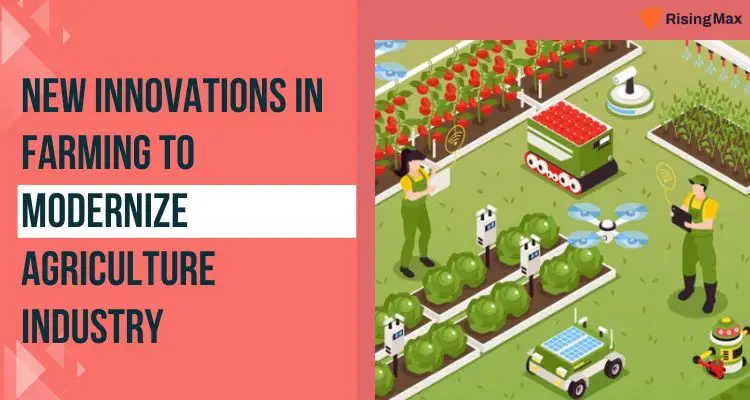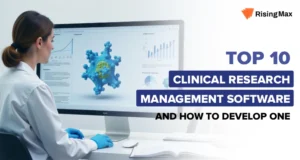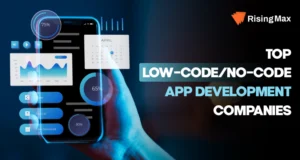With the adaptation of rural landscapes and amidst the symphony of rustling leaves and distant tractors, a silent revolution is taking root in the world of agriculture. Welcome to the cutting edge of farming, where creativity pushes past the boundaries of custom and creates an environment full of innovative technologies and environmentally friendly methods.

In this agricultural discussion, the rows of crops are a testament to the dynamic effort and the seamless integration of biotechnology, aquaponics, and blockchain. As the sun sets over fields that have seen the eons of agricultural practices, it casts its glow on a farm that embraces smart technologies, robotics, and the promise of a circular economy.
Commence through the lush fields and high-tech greenhouses, where each seed planted is a nod to the future, and each harvest is a celebration of the union between age-old wisdom and cutting-edge trends in farming and agriculture. Farmers constantly seek innovative ways to enhance productivity, sustainability, and efficiency in the ever-evolving world of agriculture.
Statistics Of The Advanced Agricultural Technology Market

Agricultural technology market value (2020-2026) – Statista
- The AgTech market is valued at more than $20 billion worldwide.
- By 2030, the market is projected to develop at a compound annual growth rate (CAGR) of 10.2% to reach $43.37 billion.
- Funding for startups in agriculture technology increased to approximately $73.2 billion in 2021 from approximately $37.7 billion the year before.
- The current valuation of the global AgTech market stands at $21.89 billion as of 2023.
Let’s explore some of the noteworthy developments shaping the future of farming.
Smart Farming, Smarter Results!
RisingMax’s commitment to smart farming technologies is reshaping the way farmers operate. Uncover how IoT solutions and automation provided by RisingMax can enhance efficiency, streamline operations, and ensure sustainable practices for a greener future. Embrace smart farming with RisingMax by your side!
New Technologies & Trends In Farming And AgTech
Imagine fields where crops rise aloft in stacked layers instead of spreading across huge swaths, where the traditional dance of sowing and harvesting is synchronized with the whirring sound of drones. The agricultural landscape is witnessing a transformation with the adoption of these cutting-edge techniques and trends.
Precision Agriculture
Precision agriculture leverages technology such as GPS, sensors, and data analytics to optimize field-level management with regard to crop farming. By tailoring inputs such as water, fertilizer, and pesticides, farmers can enhance yields while minimizing waste. This data-driven approach improves resource efficiency and contributes to sustainable farming practices.
Vertical Farming
As urbanization continues to rise, so does the demand for locally sourced, fresh goods. Vertical farming addresses this challenge by cultivating crops in vertically stacked layers, often in controlled indoor environments. This method reduces the need for vast expanses of land, utilizes less water, and allows for year-round production, ultimately providing a sustainable solution for urban agriculture.
Drone Technology
Drones are increasingly becoming an integral part of modern agriculture. Drones with advanced cameras and sensors provide farmers with real-time insights into crop health, irrigation needs, and pest infestations. This aerial perspective enables quicker decision-making and targeted interventions, leading to improved yields and cost-effective farm management.
Sustainable Practices
The global focus on sustainability has prompted a shift towards eco-friendly farming practices. From organic farming and agroforestry to regenerative agriculture, farmers are adopting methods that prioritize soil health, biodiversity, and long-term environmental sustainability. These practices benefit the environment and resonate with consumers seeking ethically produced food.
AI & Machine Learning
Artificial intelligence (AI) and machine learning technologies are making significant inroads into agriculture. These tools analyze vast amounts of data to predict crop yields, optimize resource allocation, and detect early signs of crop diseases. By harnessing the power of AI, farmers can make informed decisions that lead to increased efficiency and better overall farm management.
Smart Farming
Smart farming integrates Internet of Things (IoT) devices and sensors into agricultural operations. These technologies monitor and control various aspects of farming, including soil moisture levels, equipment performance, and livestock health. Smart farming enhances efficiency, reduces waste, and allows for remote monitoring and management.
Blockchain In Agriculture
Blockchain technology ensures transparency and traceability in the agricultural supply chain. By creating an immutable ledger of transactions, it verifies the authenticity and origin of agricultural products, addressing concerns related to food safety and quality.
Robotics In Agriculture
The deployment of robots in agriculture automates tasks such as planting, harvesting, and weeding. Robotics reduces the need for manual labor, mitigates labor shortages, and enhances precision in farming operations, ultimately improving efficiency and productivity.
Aquaponics & Hydroponics
Aquaponics combines aquaculture (fish farming) with hydroponics (soilless plant cultivation). This symbiotic system allows nutrient-rich water from fish tanks to nourish plants while plants filter and purify the water for fish. Hydroponics, on the other hand, involves growing plants in nutrient solutions without soil. Both methods conserve water and space and offer controlled environments for optimal crop growth.
Genetically Modified Organisms (GMOs)
Biotechnology, including genetic modification, contributes to crop improvement. GMOs can enhance crop resilience, increase yields, and confer resistance to pests and diseases. While controversial, these technologies play a role in addressing global food security challenges.
Data-Driven Decision-Making
The increasing availability of data from various sources, including sensors, satellites, and on-farm machinery, empowers farmers to make data-driven decisions. Analyzing this wealth of information allows farmers to optimize planting schedules, monitor crop health, and adapt to changing weather conditions.
AgTech Startups
The agriculture technology (AgTech) sector has seen a surge in startups focused on addressing specific challenges in farming. These companies innovate by developing technologies such as precision farming tools, automated equipment, and digital platforms that connect farmers with markets, contributing to the modernization of agriculture.
Climate-Smart Agriculture
Climate-smart agriculture integrates practices and technologies that adapt to and mitigate the impacts of climate change. This includes implementing drought-resistant crops, optimizing water usage, and employing resilient farming techniques to ensure sustainable and productive agriculture in the face of changing climates.
Urban Farming
Urban farming initiatives bring agriculture into cities, utilizing underutilized spaces like rooftops, vacant lots, and vertical structures. These projects promote local food production, reduce transportation-related emissions, and engage communities in sustainable practices, fostering a closer connection between urban dwellers and their food sources.
Agriculture Circular Economy
The circular economy approach in agriculture focuses on minimizing waste and promoting sustainability. This involves reusing agricultural by-products, recycling nutrients, and repurposing waste materials. Farmers contribute to a more sustainable and resource-efficient agricultural system by adopting circular economy principles.
Also Read: App Ideas for Agriculture & Farming Industry
Benefits Of Advanced Agriculture Technologies For Farming
The beginning of new agricultural technologies has ushered in a multitude of benefits, transforming traditional farming practices and paving the way for a more efficient, sustainable, and productive agricultural sector. These technological advancements promise a bountiful harvest and a future where agriculture coexists harmoniously with the environment and addresses the challenges of a changing world.
Increased Productivity
Precision agriculture, AI, and machine learning optimize resource management, leading to increased crop yields. Farmers can precisely tailor inputs like water, fertilizers, and pesticides, resulting in higher productivity and reduced waste.
Resource Efficiency
Technologies such as sensors and IoT devices enable real-time soil conditions, crop health, and water usage monitoring. This data-driven approach allows farmers to use resources more efficiently to minimize environmental impact.
Sustainability
Sustainable farming practices, including organic farming, agroforestry, and regenerative agriculture, are promoted through new technologies. These practices prioritize soil health, biodiversity, and reduced reliance on synthetic inputs.
Improved Decision-Making
Data analytics and AI empower farmers with actionable insights. By analyzing large datasets, farmers can make informed decisions about planting schedules, crop rotations, and resource allocation, leading to better overall farm management.
Climate Risks Mitigation
Climate-smart agriculture adapts to and mitigates the impacts of climate change. Drought-resistant crops, early disease detection, and weather prediction help farmers navigate climate risks, ensuring more resilient farming systems.
Reduced Labor Dependency
Robotics and automation technologies, including drones and smart machinery, reduce the need for manual labor. This is particularly crucial in addressing labor shortages and providing cost-effective solutions from planting to harvesting.
Traceability & Transparency
Blockchain technology ensures transparency in the agricultural supply chain. From seed to table, consumers can trace the origin and journey of products, fostering trust and accountability in the food production process.
Localized Food Production
Vertical farming and urban agriculture bring food production closer to urban centers. This localized approach reduces the carbon footprint associated with transportation, providing fresh goods to urban areas and supporting food security.
Economic Benefits
Adoption of new agricultural technologies can lead to economic growth. Increased productivity, reduced waste, and the development of AgTech startups contribute to a more robust and resilient agricultural economy.
Innovation & Research
The integration of technology stimulates ongoing research and innovation. Agricultural researchers continually explore new ways to enhance crop varieties, improve disease resistance, and develop more sustainable farming practices.
Global Food Security
Biotechnology, including genetically modified organisms (GMOs), contributes to addressing global food security challenges. Crops with enhanced resistance to pests and diseases ensure sufficient food supply for a growing population.
Empowering Smallholders
Access to technology empowers smallholder farmers by providing them with tools and knowledge to improve their farming practices. This inclusivity supports equitable agricultural development and poverty alleviation.
Experience the Future of Agriculture with RisingMax – Transforming Today for a Greener Tomorrow.
Conclusively
The future of agriculture is exciting, driven by a fusion of technology, sustainability, and innovation. Farmers worldwide adopt these new techniques and trends to overcome challenges, increase productivity, and contribute to a more sustainable and resilient food supply. As we look ahead, the synergy between traditional farming wisdom and cutting-edge technologies will continue to redefine the way we cultivate the land and feed the growing global population.
RisingMax Inc. is a prominent software development company using these innovative technologies for the farming and agriculture industry to help improve farmers’ livelihoods globally. We are well-known for conceptualizing, designing, and implementing new farming technologies, leading to better life, better services, and sustainable growth in agriculture.











